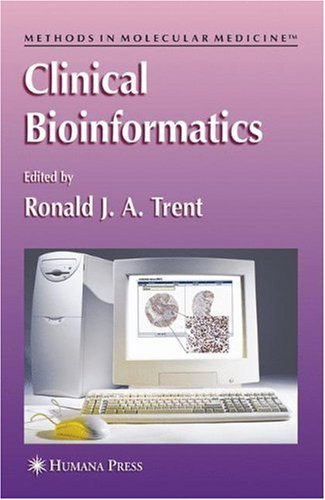

Most ebook files are in PDF format, so you can easily read them using various software such as Foxit Reader or directly on the Google Chrome browser.
Some ebook files are released by publishers in other formats such as .awz, .mobi, .epub, .fb2, etc. You may need to install specific software to read these formats on mobile/PC, such as Calibre.
Please read the tutorial at this link: https://ebookbell.com/faq
We offer FREE conversion to the popular formats you request; however, this may take some time. Therefore, right after payment, please email us, and we will try to provide the service as quickly as possible.
For some exceptional file formats or broken links (if any), please refrain from opening any disputes. Instead, email us first, and we will try to assist within a maximum of 6 hours.
EbookBell Team

4.1
30 reviews
ISBN 10: 1603271486
ISBN 13: 978-1603271486
Author: Ronald Trent
With the ever-increasing volume of information in clinical medicine, researchers and health professionals need computer-based storage, processing and dissemination. In Clinical Bioinformatics, leading experts in the field provide a series of articles focusing on software applications used to translate information into outcomes of clinical relevance. Covering such topics as gene discovery, gene function (microarrays), DNA mutation analysis, proteomics, online approaches and resources, and informatics in clinical practice, this volume concisely yet thoroughly explores its cutting edge subject.
In this emerging "omics" era, Clinical Bioinformatics is the perfect guide for researchers and clinical scientists to unlock the complex, dense, and ever-growing accumulation of medical information.
1 In Silico Gene Discovery
2 Whole Genome-Wide Association Study Using Affymetrix SNP Chip: A Two-Stage Sequential Selection Method to Identify Genes That Increase the Risk of Developing Complex Diseases
3 Utilizing HapMap and Tagging SNPs
4 Measuring the Effects of Genes and Environment on Complex Traits
5 Microarrays—Planning Your Experiment
6 Clinical Uses of Microarrays in Cancer Research
7 Microarrays—Analysis of Signaling Pathways
8 Microarrays—Identifying Molecular Portraits for Prostate Tumors with Different Gleason Patterns
9 Microarrays for the Study of Viral Gene Expression During Human Cytomegalovirus Latent Infection
10 Computer-Assisted Reading of DNA Sequences
11 Evaluating DNA Sequence Variants of Unknown Biological Significance
12 Developing a DNA Variant Database
13 Protein Comparative Sequence Analysis and Computer Modeling
14 Identification and Characterization of Microbial Proteins Using Peptide Mass Fingerprinting
15 Statistical Analysis of Image Data Provided by Two-Dimensional Gel Electrophoresis for Discovery Proteomics
16 Online Resources for the Molecular Contextualization of Disease
17 Web-Based Resources for Clinical Bioinformatics
18 Developing Decision Support Systems in Clinical Bioinformatics
19 eConsulting
journal of clinical bioinformatics
clinical bioinformatics salary
clinical bioinformatics jobs
clinical bioinformatics genomics
clinical bioinformatics course